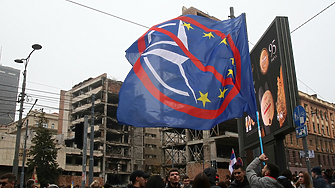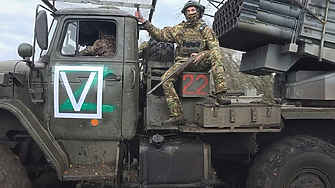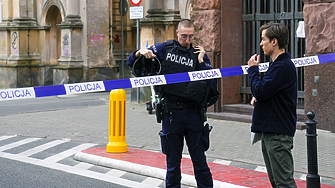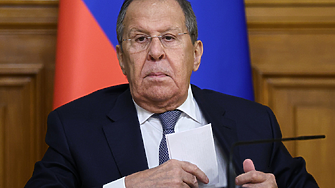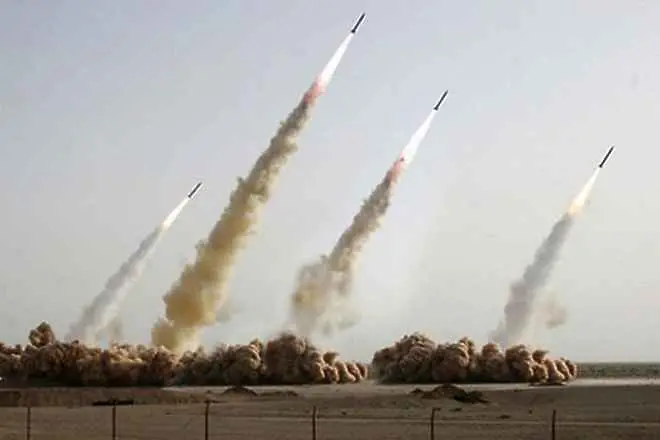
"Ако видим и най-малката грешна стъпка от страна на враговете, нашите ревящи ракети ще паднат на главите им."
Това са думите на бригаден генерал Амир Али Хаджизаре от Революционната гвардия на Иран към САЩ, след като вчера бяха обявени нови санкции срещу страната, която изстреля тестова балистична ракета преди дни, съобщи Ройтерс.
25 физически и юридически лица, свързани с теста, получиха забрана за всякакви бизнес-отношения с американското правителство или отделни граждани и компании.
Това не обаче не спря Иран да повтори теста днес не само с ракети, но и с радари, ПВО-системи и командни центрове
"Работим ден и нощ, за да защитим сигурността на Иран", обясни генерал Хаджизаре.
Напрежението между САЩ и Техеран се покачва. Вчера президентът на САЩ Доналд Тръмп ги предупреди "не си играйте с огъня". По-рано днес министърът на отбраната на САЩ Джим Матис заяви, че Иран е държавата, която финансира най-много ислямистите.
Иранските военни обаче не се смущават от предупрежденията на САЩ. Главнокомандващия наземните сили на страната Ахмад Реза Пурдастан заяви днес:
"Защитните възможности и офанзивната мощ на иранските въоръжени сили ще накара АМерика или който и да е друг враг да съжалява за своето нахлуване."
Despite the heated words, U.S. Defense Secretary Jim
Dismissing Trump's comments that "nothing is off the table" in dealing with Tehran, the commander of Iran's ground forces said on Saturday that the Islamic Republic has been hearing such threats since its 1979 revolution.
"The defence capability and the offensive prowess of Iran's armed forces would make America or any other enemy regretful of any incursion," Ahmad Reza Pourdastan was quoted as saying by ISNA.
BALLISTIC TEST
Iranian state news agencies reported that home-made missile systems, radars, command and control centres, and cyber warfare systems would be tested in Saturday's drill.
Iran has one of the Middle East's largest missile programmes and held a similar exercise in December to showcase its defence systems, including radars, anti-missile defence units, and short and medium-range missiles.
Tehran confirmed on Wednesday that it had test-fired a new ballistic missile, but said the test did not breach the Islamic Republic's nuclear agreement with world powers or a U.N. Security Council resolution endorsing the pact.
The United Nations Security Council held an emergency meeting on Tuesday and recommended the missile testing be studied at committee level. The new U.S. ambassador to the United Nations, Nikki Haley, called the test "unacceptable".
The Security Council resolution was adopted to buttress the deal under which Iran curbed its nuclear activities to allay concerns they could be used to develop atomic bombs, in exchange for relief from economic sanctions.
The resolution urged Tehran to refrain from work on ballistic missiles designed to deliver nuclear weapons. Critics say the resolution's language does not make this obligatory.
Tehran says it has not carried out any work on missiles specifically designed to carry nuclear payloads.
Подкрепете ни
Уважаеми читатели, вие сте тук и днес, за да научите новините от България и света, и да прочетете актуални анализи и коментари от „Клуб Z“. Ние се обръщаме към вас с молба – имаме нужда от вашата подкрепа, за да продължим. Вече години вие, читателите ни в 97 държави на всички континенти по света, отваряте всеки ден страницата ни в интернет в търсене на истинска, независима и качествена журналистика. Вие можете да допринесете за нашия стремеж към истината, неприкривана от финансови зависимости. Можете да помогнете единственият поръчител на съдържание да сте вие – читателите.
Подкрепете ни

